- Home
- J. R. R. Tolkien
Beowulf: A Translation and Commentary, together with Sellic Spell Page 13
Beowulf: A Translation and Commentary, together with Sellic Spell Read online
Page 13
691-2 (*850) O.E. déaðfǽge déog ‘doomed to die he plunged’: see the commentary, pp. 279–80.
707-8 (*870–1) O.E. word óþer fand sóðe gebunden: ‘word followed word, each truly linked to each’. This rendering goes back to B(i); my father did not change it later, despite the view that he expressed in the commentary on 705–10; see pp. 280 ff.
709 (*871–2) B(i) and C have ‘began with skill to treat in poetry the quest of Beowulf; ‘in poetry’ was later bracketed in C, and I have omitted it from LT.
735 (*902) ‘in the land of the Jutes’ (O.E. mid Éotenum): the form ‘Eotens’ appears in B(i) and C; in the latter my father pencilled above it a name that I am unable to decipher. See further the textual note below on 875–6 ‘Jutes’.
791-2 (*971) On the omission of the words tó lífwraþe (‘to save his life’) in the translation see the commentary, p. 297.
803-5 (*984–7) See the commentary, pp. 298–301.
813-15 (*997–9) B(i) and C: ‘Sorely shattered was that shining house, all bound as it was within with bonds of iron, the hinges of the doors were wrenched apart’; in C emended later to the wording in LT. See the commentary, pp. 301–2.
850-1 (*1044) O.E. eodor Ingwina: ‘the warden of the Servants of Ing (Danes)’: ‘warden’ was a late change from ‘bulwark’ in C, and the explanatory ‘Danes’ in brackets is present in B(i) and C.
875-6 (*1072) ‘the loyalty of the Jutes’ (O.E. Éotena tréowe): here as in 735 and in the subsequent references, 889 (*1088), 937 (*1141), 939 (*1145), the name in B(i) and C is ‘Eotens’. At 735 as already noted the name was changed in C to an illegible form, but in the other cases it was changed to ‘Eote’; at line 876 (only) ‘Jutes’ was written above ‘Eote’.
In LT I have printed ‘Jutes’ in all cases. There is a substantial discussion of this question in J.R.R. Tolkien, Finn and Hengest, ed. Alan Bliss, 1982, entry Eotena in the Glossary of Names, where also will be found an explanation of the form Eote, and a translation of the Fréswæl (as my father termed the minstrel’s lay in Heorot: ‘the Frisian slaughter’, Beowulf 874, *1070) distinct from that in this book.
877 (*1074) ‘of brothers and of sons’: see the commentary p. 303, and my father’s discussion in Finn and Hengest p. 96.
898 (*1098) ‘the sad remnant (of the fight)’ (O.E. þá wéaláfe): the explanatory words in brackets are found in B(i) and C.
917-19 (*1121–3) B(i) and C: ‘their gaping wounds burst open, the cruel hurts of the body, and the blood sprang forth. Flame devoured them all, hungriest of spirits . . .’ O.E. bengeato burston, ðonne blód ætspranc, láðbite líces. Líg ealle forswealg, gǽsta gífrost . . .
Very rapidly in barely legible pencil my father changed this in C to ‘their gaping wounds burst open, the cruel hurts of the body, and the blood sprang away from the cruel devouring of the flame. Flame swallowed up them all . . .’ This translation depends on his view (Finn and Hengest, see note to 875–6 above) that by scribal error líg ‘flame’ and líc ‘body’ were reversed, hence his translation in Finn and Hengest, pp.152–3, ‘gaping wounds burst open, when the blood sprang away from the cruel bite of flame (láðbite líges). That greediest of spirits consumed all the flesh (líc eall forswealg) of those . . .’ He compared *2080 (1748–9) líc eall forswealg ‘all the flesh devoured’.
Since the emendation in C was clearly at an early stage I have left the original reading to stand in LT.
1102 (*1320) ‘according to his desire’; pencilled here in B(i): ‘seeing that he was summoned thus earnestly’.
1191 (*1428) ‘in the middle hours’ (O.E. on undernmǽl). B(i) as typed had ‘in the very morning time’, corrected to ‘the underntide’ with ‘middle hours’ written by the side; C ‘in the middle hours’.
1216 (*1458) ‘old and precious things’ (O.E. ealdgestréona). B(i) ‘prizéd’, C ‘precious’; the reading in B(i) was not corrected, but ‘precious’ appears in C as if it had been present in the previous text; presumably my father communicated this to me, perhaps on account of ‘misprized’ in line 1213.
1217 (*1459) O.E. átertánum fáh; B(i) and C ‘stained with a device of branching venom’, with a footnote in B(i) and in C (as usual bracketed and incorporated in the text) ‘or “deadly with venom from poisoned shoots”.’
1227-8 (*1470–1) O.E. þǽr hé dóme forléas, ellenmǽ rðum. In B(i) there is no translation of these words, but the need for it is marked in the text, and at the foot of the page is written in an unknown and unformed handwriting (one of the many small oddities of these texts) ‘There he forfeited glory for heroic deeds’, with ‘lost’ written above ‘forfeited’ as an alternative. This I typed (with ‘forfeited’) in C.
1261 (*1510) ‘as they swam’, O.E. on sunde: there is a footnote in B(i) and C ‘or “in the flood” (on sunde, cf. *1618).’ At *1618 (1357) Sóna wæs on sunde is translated ‘Soon was he swimming’.
1264–5 (*1513) ‘that he was in some abysmal hall’: a footnote to ‘abysmal’ in B(i) and C suggests ‘hostile, evil’ as a translation for O.E. níðsele.
1287 (*1537) ‘by her locks’: this translates be feaxe, which is an emendation of the manuscript be eaxle; a footnote here in B(i) and C has ‘or (manuscript) “shoulder”, but alliteration and the next words are against this.’
1299 (*1551) ‘beneath the widespread earth’ (O.E. under gynne grund): footnote in B(i) and C ‘or “under the vasty deep”; “under” is rather against the sense “earth”.’
1304-5 (*1557) ‘a sword endowed with charms of victory’, O.E. sigeéadig bil: B(i) and C have ‘a sword endowed with victory’s might’, with ‘magic?’ pencilled over ‘victory’s’ in B(i) and taken up in C, later changed in that text to ‘with charms of victory’.
1414-15 (*1686) ‘on Sceden-isle’, O.E. on Scedenigge: see the commentary, p. 148.
1444 (*1720) O.E. æfter dóme ‘to earn him praise’: footnote in B(i) and C: ‘æfter dóme may mean “according to honourable use”.’ See the note to 1831 below.
1481 (*1764) O.E. oððe flódes wylm was missed out in B(i); ‘or water’s wave’ was supplied in C as if it had been present in B(i).
1549 (*1847) ‘Hrethel’s son’ (O.E. Hréþles eaferan): footnote in B(i) and C: ‘or, if the reference is fully prophetic, “descendant”, i.e. Heardred’ (son of Hygelac; see 1853–4).
1551 (*1850) O.E. Sǽ-Géatas, ‘sea-loving Geats’: see the note to 182–3 above.
1554-62 (*1855–63) Another translation of these lines appears in the commentary on 303–4, p. 217.
1666-7 (*1983) ‘to the hands of mighty men’, O.E. hæleðum tó handa (hæleðum is an emendation of the manuscript hæ[ð]num): footnote in B(i) and C: ‘or Hæthenas, name of a people.’ See the commentary, pp. 318 ff.
1711 (*2035) At the words ‘amid their host’ a footnote in B(i) and C says ‘passage corrupt and doubtful’. See the commentary on 1708 ff, 338 ff.
1773 (*2112) ‘in age’s fetters did lament his’: the B(i) typescript stops here at the foot of a page, and the B(ii) manuscript begins a new page with ‘youth and strength in arms’.
(From this point the textual changes, alternatives, and explanations referred to are those made to the manuscript B(ii). Many of these, as noted, were taken up into the C typescript.)
1788-9 (*2130) ‘(most grievous of those his sorrows) that he, lord of his folk, long while had known’, O.E. þára þe léodfruman lange begéate: marginal note ‘literally, had long while befallen the people’s prince’.
1796 (*2139) ‘in that abysmal hall’. The word ‘abysmal’ (cf. note to 1264–5 above) is bracketed, with a marginal note ‘[grund]sele’. The O.E. manuscript has in ðám sele with no gap. The meaning is ‘the hall at the bottom of the mere.’
1801 (*2144) O.E. þéawum: ‘kingly virtue’: in B(ii) and C ‘ancient virtue’, but in B(ii) ‘ancient’ was bracketed with ‘kingly’ written above.
1810 (*2154) O.E. gyd: ‘these fitting words’ changed – at the time of writing (
there are many such instances in B(ii) – to ‘these appointed words’. On gyd see the commentary pp. 260–1, 347–8.
1816 (*2162) O.E. Brúc ealles well! Beside ‘Use all the gifts with honour’ is written in very faint pencil ‘Blessed be thy use of all the gifts’.
1831 (*2179) ‘bearing himself honourably’, O.E. dréah æfter dóme: in a bracketed addition to the text other renderings are suggested: ‘according to [?worthy] tradition’ > ‘according to honourable use’, or ‘so as to earn praise’; with a reference to *1720, see textual note to 1444 above.
1834-5 (*2182) ‘those lavish gifts which God had granted him’: added in the manuscript: ‘sc. gifts of prowess, manhood, strength, and prudence, loyalty, &c.’
1882 (*2236) Added after ‘All of them’: ‘(that kin)’; repeated in C.
1885 (*2239) O.E. winegeómor ‘grieving for his friends’: added: ‘(or “lord”)’.
1888-9 (*2243) ‘secured by binding spells’, O.E. nearocræftum fæst: added: ‘(or “inaccessible (confining) arts”)’; repeated in C.
1908 (*2266) ‘many a one of living men’, O.E. fela feorhcynna: added in brackets: ‘life’s kindred’; repeated in C.
1909-10 (*2267–8) O.E. Swá giómormód giohðo mǽnde án æfter eallum, ‘Even thus in woe of heart he mourned his sorrow, alone when all had gone’: following this in brackets ‘alone mourning for them all’.
1910 (*2268) ‘joyless he cried aloud’, marginal note ‘or “walked abroad”’, repeated in C. Only the first three letters of the O.E. verb could even many years ago be certainly read in the manuscript; my father’s two translations reflect different proposals, the first being hwéop (hwópan) in a doubtful sense ‘lamented’, the second hwearf (hweorfan), ‘moved, went about, wandered’.
1912-14 (*2270–2) O.E. Hordwynne fond eald úhtsceaða opene standan, sé ðe byrnende biorgas séceð, ‘This hoarded loveliness did the old despoiler wandering in the gloom find standing unprotected, even he who filled with fire seeks out mounds (of burial)’: against this my father wrote: ‘Can this be done more concisely?’
1934-5 (*2296–7) O.E. hlǽw oft ymbehwearf ealne útanweardne, ‘he compassed all the circuit of the mound’: footnote ‘literally, turned about all the outward mound’.
1944 (*2307) ‘on the mountain-side’, O.E. on wealle: marginal note ‘possibly, “by the mound’s wall”,’ repeated in C.
1947 (*2312) ‘the invader’, O.E. se gæst: marginal note ‘or “creature”?’; repeated in C.
1963 (*2330) O.E. ofer ealde riht, ‘against the ancient law’: marginal note ‘i.e. that laid down of old’.
2063 (*2454) ‘evil deeds’ (O.E. dǽda): following this in the manuscript: ‘(sc. men’s cruelty)’; repeated in C.
2103 (*2501) O.E. for dugeðum, ‘before the proven hosts’; marginal note ‘or “by reason of my valour”?’
2124-5 (*2527–8) ‘Fearless is my heart, wherefore I forbear from vaunting threat against this wingéd foe’; O.E. Ic eom on móde from, þæt ic wið þone gúðflogan gylp ofersitte. In margin: ‘referring to his modest words that “the result is in the hands of fate” – whereas he might have said: “I shall defeat the dragon, as I have all others”.’
2133-4 (*2538–9) ‘Then the bold warrior stood up beside his shield, resolute beneath his helm’ (O.E. Árás ðá bí ronde, róf óretta, heard under helme). Following this in the manuscript: ‘or “arose, resolute in heart, his shield at side, his helm at head”’, repeated in C.
2140-3 (*2546–9) Here there is a marginal note: ‘The dragon was on fire now with wrath, formerly (when the hoard was plundered) he was asleep.’
2147 (*2554) Added after ‘Hatred was aroused’: ‘(within)’; repeated in C.
2161–3 (*2573–5) The translation in the manuscript B(ii) as I have given it was allowed to stand, but my father introduced a distinct interpretation in a footnote: ‘when he had chance on that occasion for its first day of battle to wield it [the shield, see 1970–2] – for fate did not appoint him triumph in that combat’. This footnote looks very much as if it were added at the time of writing the page, which of course carries the text in the main body of the translation, but C does not include this second version. I have found no note of my father’s on this difficult passage.
2164-5 (*2576–7) O.E. gryrefáhne slóh incgeláfe, ‘with his ancient sword smote the dread foe’. After ‘sword’ follows in the manuscript ‘(exact sense unknown of incgeláfe)’. Against the word ‘dread foe’ there is a marginal note with a query: ‘that thing of dreadful hue: that dreadfully shining thing’; this was repeated in C.
2172-4 (*2586–8) O.E. Ne wæs þæt éðe síð, þæt se mǽra maga Ecgðéowes grundwong þone ofgyfan wolde. The translation first written here ran: ‘No pleasant fare was his that . . . the son of Ecgtheow should witting leave that field on earth’. This was struck through immediately and replaced by ‘No easy task was his that day (nor such) that the son of Ecgtheow should of his own will forsake that field on earth’. Subsequently ‘pleasant fare’ was retrieved from the rejected sentence and written above ‘easy task’, and the word ‘renowned’ was entered in pencil before ‘son of Ecgtheow’ in my handwriting of that time (but without the needed accent ‘renownéd’!). It translates mǽra in se mæ´ra maga Ecgðéowes *2587. It seems possible that I was following the Old English text and pointed out its absence to my father. The word ‘renowned’ appears in the C text, but ‘easy task’ was still retained.
2258–9 (*2688–9) ‘the destroyer of the folk, the fell fire-dragon’ (O.E. þéodsceaða . . . frécne fýrdraca). In the margin my father wrote: ‘CH the public scourge, the dreadful salamander!’ And at 2309–10 (*2749) he wrote against ‘clear jewels cunning-wrought’ (O.E. swegle searogimmas) ‘bright artistic gems!’
Both of these absurd expressions in the original translation of Beowulf by J.R. Clark Hall (1911) appeared in my father’s ‘Prefatory Remarks’ to the revised edition of Clark Hall by C.L. Wrenn, 1940, p. xiii.
2260-2 (*2690–2) O.E. þá him rúm ágeald, hát ond heaðogrim, heals ealne ymbeféng biteran bánum. The translation as written read ‘(the dragon rushed upon Beowulf) now that a clear field was given him. His neck with his sharp bony teeth he seized now all about’. The words hát ond heaðogrim were thus omitted, but they are written in the margin of the manuscript in my handwriting, and their translation ‘burning and fierce in battle’ appear in the C text as typed.
Whether I observed this and pointed it out to my father cannot be said, but I note in passing that I did to some extent at any rate follow the poem in Old English when making the typescript C of the manuscript B(ii): this is seen from my pencilled ‘(giong)’ over the word ‘went’ at line 2283 (Ðá se æðeling gíong *2715, ‘Then the prince went’). Why I did this I don’t know: perhaps I thought that giong here was the adjective ‘young’, and didn’t realise that it could also be the past tense of gangan ‘to go’. I mention this trifling matter here (and also in the note to 2172–4) because it probably casts light on the date of my typescript. I was briefly an undergraduate at Oxford in 1942, when a very reduced form of examination was introduced for an unclassed ‘wartime B.A.’, and one of the elements in this was a part of Beowulf.
2265 (*2695) ‘unbowed’ (O.E. andlongne): marginal note ‘or “steadfast throughout”.’
2271–2 (*2703) ‘drew forth a deadly dagger’ (O.E. wæll-seaxe gebrǽd): marginal note ‘It is Beowulf [who] gives the coup de grace’.
2274-5 (*2706) ‘valour had vanquished life’ (O.E. ferh ellen wræc): marginal note against ‘vanquished’: ‘driven forth his’.
2284-5 (*2717) ‘that work of giants’ (O.E. enta geweorc): marginal note ‘sc. the tomb’.
2402-3 (*2858–9) O.E. wolde dóm Godes dǽdum rǽdan gumena gehwylcum, swá hé nú gén déð. This was first translated: ‘God’s doom was ever the master then of every man in deeds fulfilled, even as yet now it is’ as in LT; but a footnote was appended in the manuscript: ‘God would then in deed accompli
sh his decrees for each and every man, even as yet now he doth.’
2423 (*2882) ‘the gateways of his head’, O.E. of gewitte. Footnote to B(ii): ‘highflown, but so is the odd expression of gewitte = eyes, ears, nose, mouth.’
2489-90 (*2963) ‘king of (his) people’ (O.E. þéodcyning): I have inserted ‘his’ which is absent from both B(ii) and C.
2548 (*3031) The manuscript B(ii) and text C have ‘Earnanæs (Eagle’s Head)’; I have substituted ‘Eagles’ Head’.
2559-60 (*3046) ‘his earthy caves’, O.E. eorðscrafa. The word in B(ii) is certainly ‘earthy’, not ‘earthly’ as in C; so also at 2597, where eorðweall (*3090) is translated ‘the earthy mound’ (again ‘earthly’ in C). (Incidentally, at 2114–15, (*2515), where Clark Hall has Beowulf referring to the habitation of ‘the destructive miscreant’ [the dragon] as ‘his earthly vault’ (O.E. eorðsele, ‘his house of earth’, 2114–15) my father placed an exclamation mark in his copy against ‘earthly’.)
2600 (*3094) ‘and all those many things he spake’, O.E. worn eall gespræc: after ‘many things’ there is an explanatory addition: ‘sc. which ye have been told’.
2626-7 (*3126) ‘No need then to cast lots who should despoil that hoard’: footnote in B(ii): ‘sc. there was no hanging back – the dragon was dead.’
2644-6 (*3150) ‘There too a lamentable lay many a Geatish maiden with braided tresses for Beowulf made’. As first written the translation reads here: ‘a lamentable lay his lady aged with braided tresses for Beowulf made’. This was widely accepted as the best solution of a very badly damaged passage in the Beowulf manuscript. Of this leaf my father wrote: ‘This is most unfortunate, as *3137–82 [the last line] are in many respects the finest part of the poem (especially in technical composition).’
The words ‘his lady aged’ translated a damaged Old English word read as g . . méowle (with the Latin word ănus ‘old woman’ written above it). In a fairly brief note on this in his commentary he said that ‘the conjectured geo-méowle is excellent in sense and metre and goes with the Latin gloss over it. The word occurs elsewhere (only) in Beowulf *2931 (2461), ióméowlan, of the aged queen of Ongentheow. It means here therefore “aged lady”, Beowulf’s unnamed queen (who may be Hygd).’

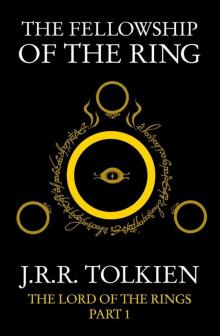 The Fellowship of the Ring
The Fellowship of the Ring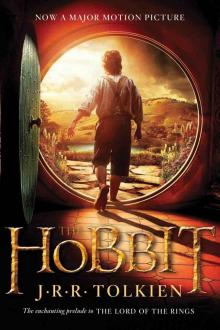 The Hobbit
The Hobbit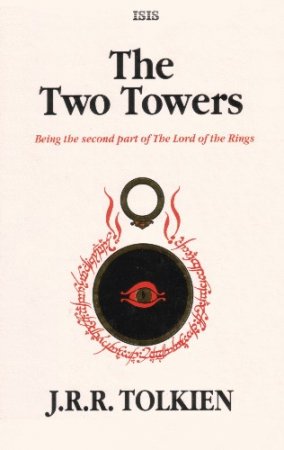 The Two Towers
The Two Towers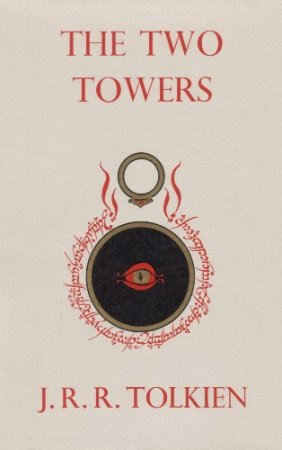 The Return of the King
The Return of the King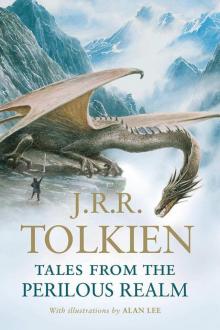 Tales From the Perilous Realm
Tales From the Perilous Realm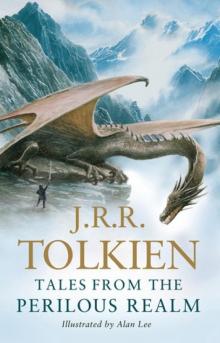 Leaf by Niggle
Leaf by Niggle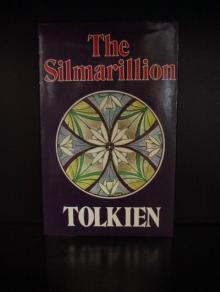 The Silmarillon
The Silmarillon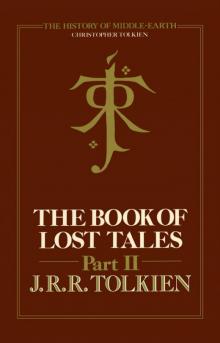 The Book of Lost Tales, Part Two
The Book of Lost Tales, Part Two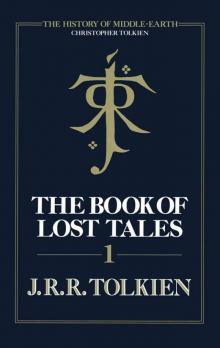 The Book of Lost Tales, Part One
The Book of Lost Tales, Part One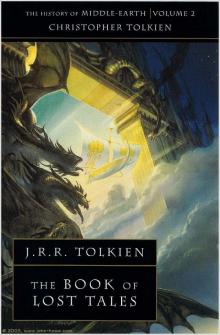 The Book of Lost Tales 2
The Book of Lost Tales 2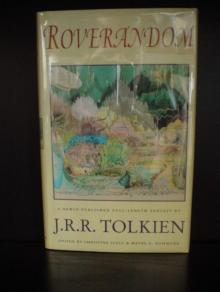 Roverandom
Roverandom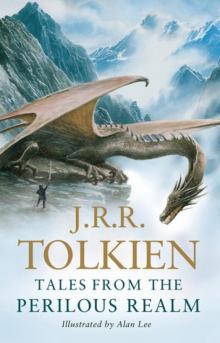 Smith of Wootton Major
Smith of Wootton Major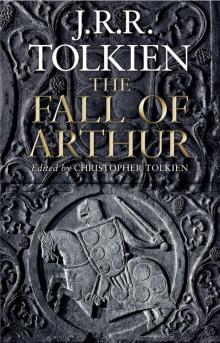 The Fall of Arthur
The Fall of Arthur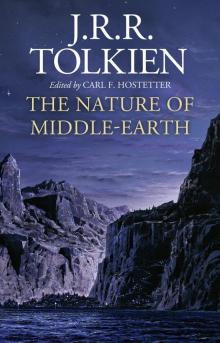 The Nature of Middle-earth
The Nature of Middle-earth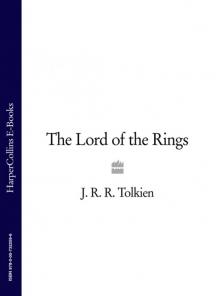 The Lord of the Rings: The Fellowship of the Ring, The Two Towers, The Return of the King
The Lord of the Rings: The Fellowship of the Ring, The Two Towers, The Return of the King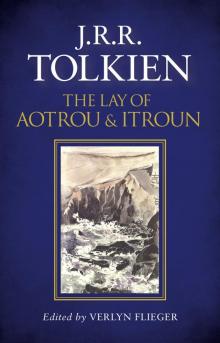 The Lay of Aotrou and Itroun
The Lay of Aotrou and Itroun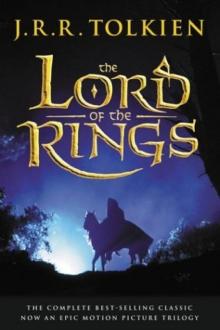 lord_rings.qxd
lord_rings.qxd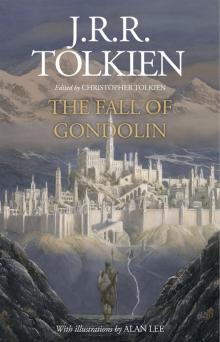 The Fall of Gondolin
The Fall of Gondolin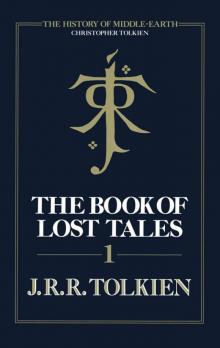 The Book of Lost Tales, Part 1
The Book of Lost Tales, Part 1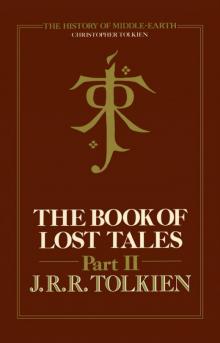 The Book of Lost Tales, Part 2
The Book of Lost Tales, Part 2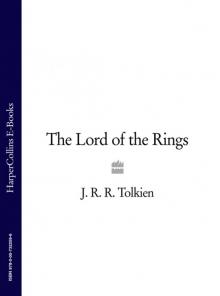 The Lord of the Rings
The Lord of the Rings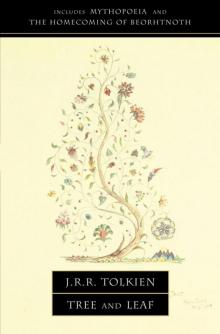 Tree and Leaf
Tree and Leaf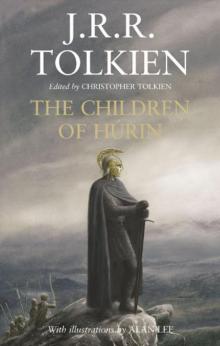 The Children of Húrin
The Children of Húrin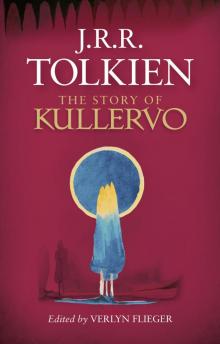 The Story of Kullervo
The Story of Kullervo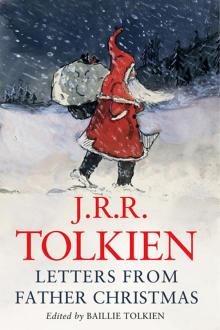 Letters From Father Christmas
Letters From Father Christmas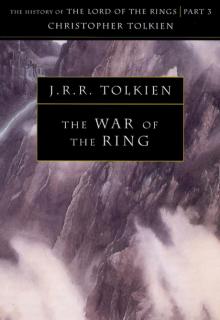 The History of Middle Earth: Volume 8 - The War of the Ring
The History of Middle Earth: Volume 8 - The War of the Ring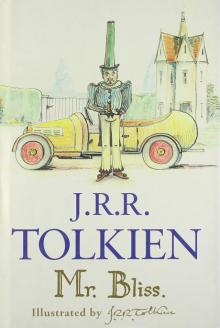 Mr. Bliss
Mr. Bliss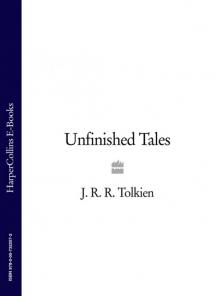 Unfinished Tales
Unfinished Tales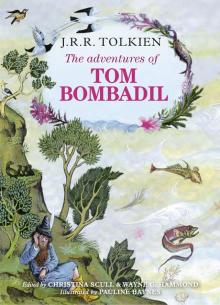 The Adventures of Tom Bombadil
The Adventures of Tom Bombadil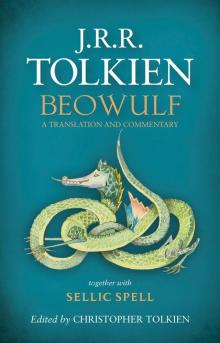 Beowulf: A Translation and Commentary, together with Sellic Spell
Beowulf: A Translation and Commentary, together with Sellic Spell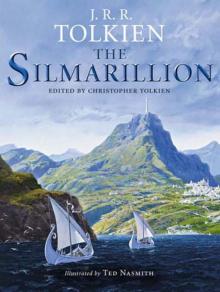 The Silmarillion
The Silmarillion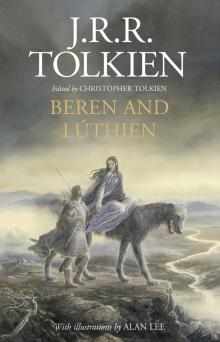 Beren and Lúthien
Beren and Lúthien